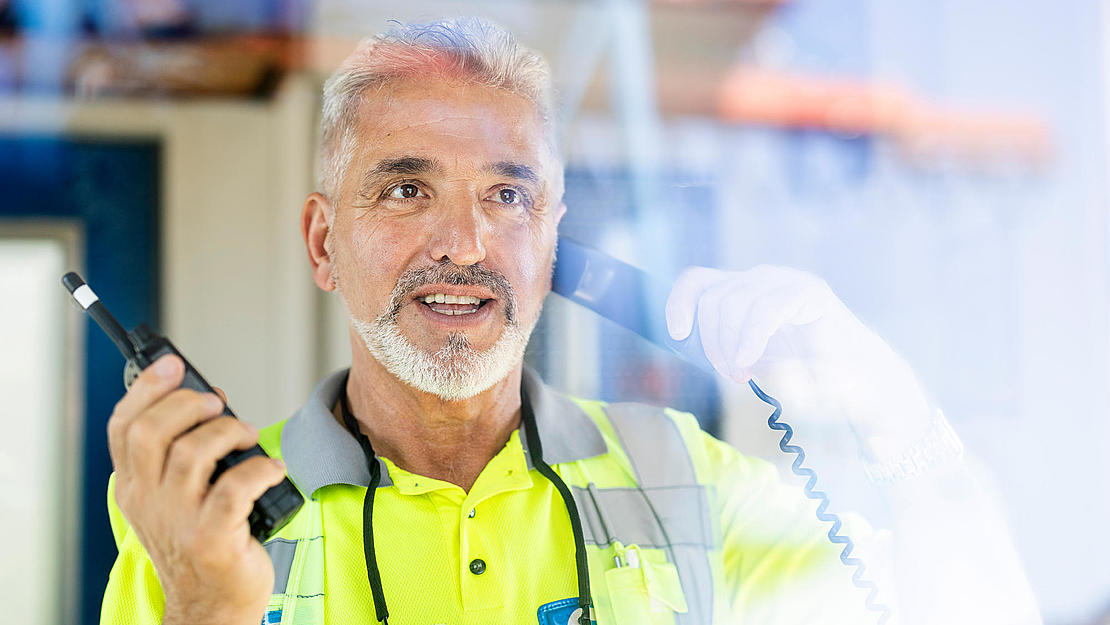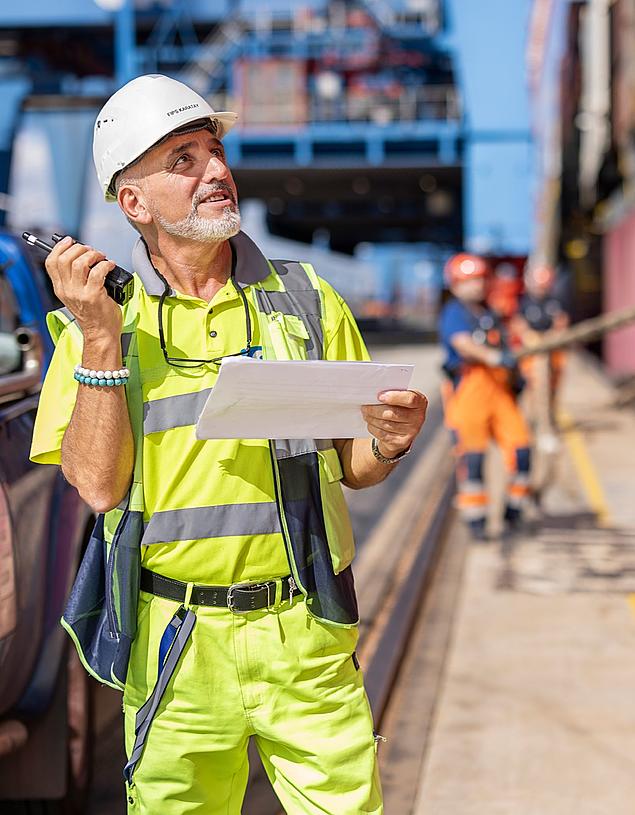Quicklinks
Quicklinks

When Fevzi Karatay arrived in Hamburg as the 16-year-old son of a migrant worker, he didn’t speak any German. At school, he learned the language, got hired at the port and worked his way up the ranks until becoming a team leader at HHLA. In the first years, he carried sacks; today, he is a team leader at the quayside of HHLA Container Terminal Altenwerder (CTA).
“I chose to continually get further training and certifications – forklift operator certification, crane operator certification for three- and 50-tonne cranes, port trade proficiency certification, large equipment training, gantry crane certification,” reminisces Karatay, known to everyone as “Fips”. As a team leader, he is also constantly learning new things.
Back in the day, we used to look for 1,500 port workers at one go on short notice through the radio, which today would be unthinkable.

He coordinates a 25-member team for container handling. Using the daily programme and the ship schedule, he decides which team members will take on which tasks during loading and unloading. Once on the ship, he oversees the individual activities or restructures groups as needed. Special instructions are sometimes necessary when dealing with dangerous goods.
Fewer people, more technology – Karatay has kept a very close eye on this development. “Back in the day, we used to look for 1,500 port workers at one go on short notice through the radio, which today would be unthinkable,” says Karatay. Specially designed boats where used to transport groups of people across the port. Back in the day, physical strength was in demand, but today, employees need to master highly-specialized devices and digital tools.
Automation has become the norm, and handling has become increasingly faster. This increases the competitiveness of the port in international business. However, a number of activities cannot yet be automated. For example, Karatay’s team must painstakingly turn containers transported in open containers using gantry cranes and place them on ships according to specifications. This is a huge job for experienced specialists.
Fips Karatay is certain that simple tasks at the port will become increasingly rare. Container gantry cranes will likely also be steered from a control centre someday. “But trained technicians who can maintain and repair the equipment will always be sought after,” Karatay assures us. He sees it as a positive that the topics of health, occupational safety, climate protection and sustainability are becoming increasingly important. “A lot of things have changed for the better here, including professional development opportunities.” Therefore, he advises young people to continue learning and being open to new things.
They have a lot to say – from the port, from the past, from their day-to-day work or from abroad.
Read more